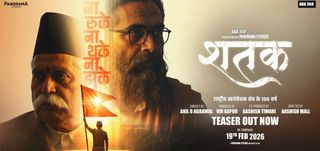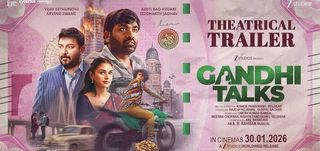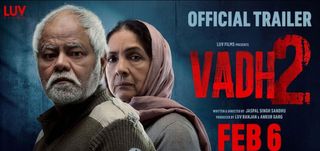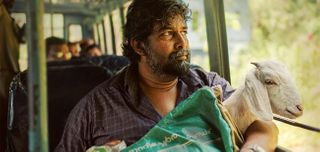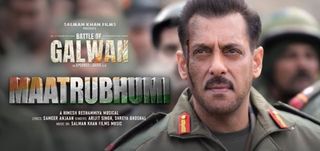
Khosla Ka Ghosla Movie Review
"Khosla Ka Ghosla" tells you that sometimes you need to lose the plot to gain it.
When Kamal Kishore Khurana (Anupam Kher) loses his precious plot of land in Delhi's rapidly degenerating concrete jungle, he gains a son who was about to leave for greener pastures (US).
Lucky Khosla! But we, the viewers, are even luckier. In Khurana's loss and gain, there lurks a hugely rewarding morality tale for us.
If "Lage Raho Munnabhai" goes Gandhian with a vengeance (no pun intended), "Khosla Ka Ghosla" tells us, through delicious tongue-in-cheek satire, that it's okay to use unfair means to get what's rightfully yours.
"Khosla Ka Ghosla" is a very rare, tender and life-giving plant that needs careful nurturing for it to yield its optimum fruits. The film is straightforward in its depiction of the working-class stress (done earlier in works as varied as Mahesh Bhatt's "Saaransh" and Raj Kumar Santoshi's "Ghaatak").
It is done so simply that you tend to miss the immeasurable amounts of unassuming talent that underline almost every scene of this remarkable film.
Jaideep Sahni's writing talent is put to exceptional use. The narrative captures the muddle and poignancy, irony and humour of Delhi's middleclass through a storytelling device where less is always more. A delectable understatement underlines almost every character's propulsion in this film about how to lose the plot to gain a much larger plot.
The real estate isn't the real asset of this robustly populated mellow-drama. The human values that one discovers in Khosla's journey from loss to redemption make the film several notches above your run-of-the-mill morality tale.
Debutant director Dibakar Banerjee fills the narrative with sharply cut incidents and episodes of an ordinary family caught in an extra-ordinary crisis. Apart from a few deliberately thrust thematic songs, Banerjee economises on the drama to focus on the characters and their quirks.
Khosla's dismayed realisation that his dream-house, into which he has invested his life's savings, is in the danger of being razed to the ground even before construction, brings to the surface the disturbing question of the fragmentation of the joint family.
Besides bringing father Kher and son Dabas together, this heart-warming film also brings other characters together in unlikely ways. The Muslim travel agent (Vinay Pathak) and the Khosla heir who prepares to fly off to America come together to plot the defeat of the real-estate shark (Boman Irani replicating to some extent his "Lage Raho..." act).
While the narrative preserves the blithe spirit to bring out the crises of the working-class, there are numerous moments that bring a lump to your throat.
Admirably, the story of humanism and victory of the human spirit gets progressively dramatic without losing plausibility. Scenes where a drama group led by a frazzled Navin Nishchol help Khosla regain his plot are done in an endearingly dare-devilish spirit.
After "Lage Raho..." this is the second film in a month to make us feel so positive about the pitfalls of urban existence. The credit must go above all to the writer and the actors for infusing an effortless candour into the working-class satire.
Every performer, from Anupam and Boman to Parveen and Tara Sharma, blends into the film's mottled fabric. Watch Tara give spunk, substance and sensitivity to the potentially trite girlfriend's role.
But for Anupam, this film is a special triumph. He puts an extra amount of heart into Khosla's character making him more real than almost anything the actor has done lately.
On the journey to Khosla's happy ending, we encounter characters who seem like our next door neighbours - Khosla's Sardar friend, the cunning tout who cheats Khosla, the stage actress who smokes her way through the plot to hoodwink Boman. Every character seems like someone you've met in that long and cumbersome journey called life.
Thank God for stopovers like "Khosla K
OTHER REVIEWS
Read Full Review











